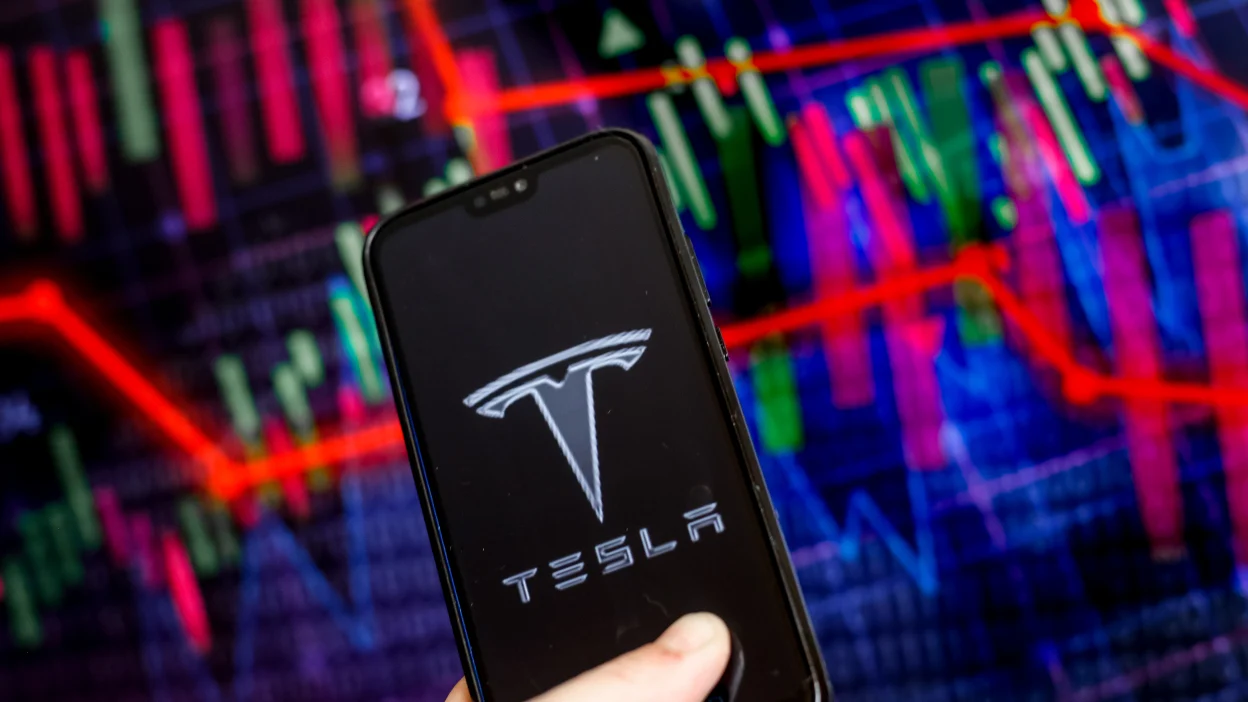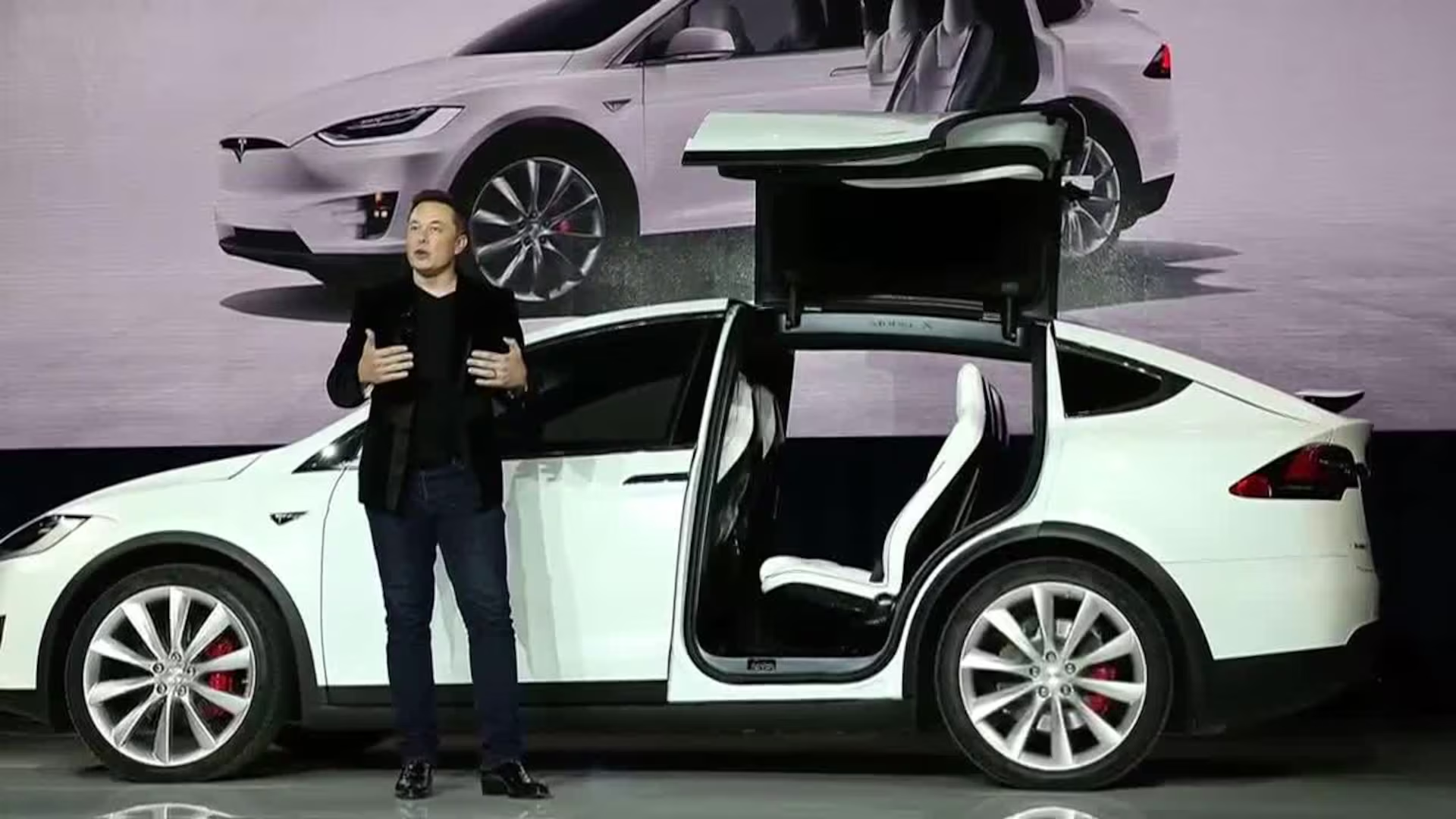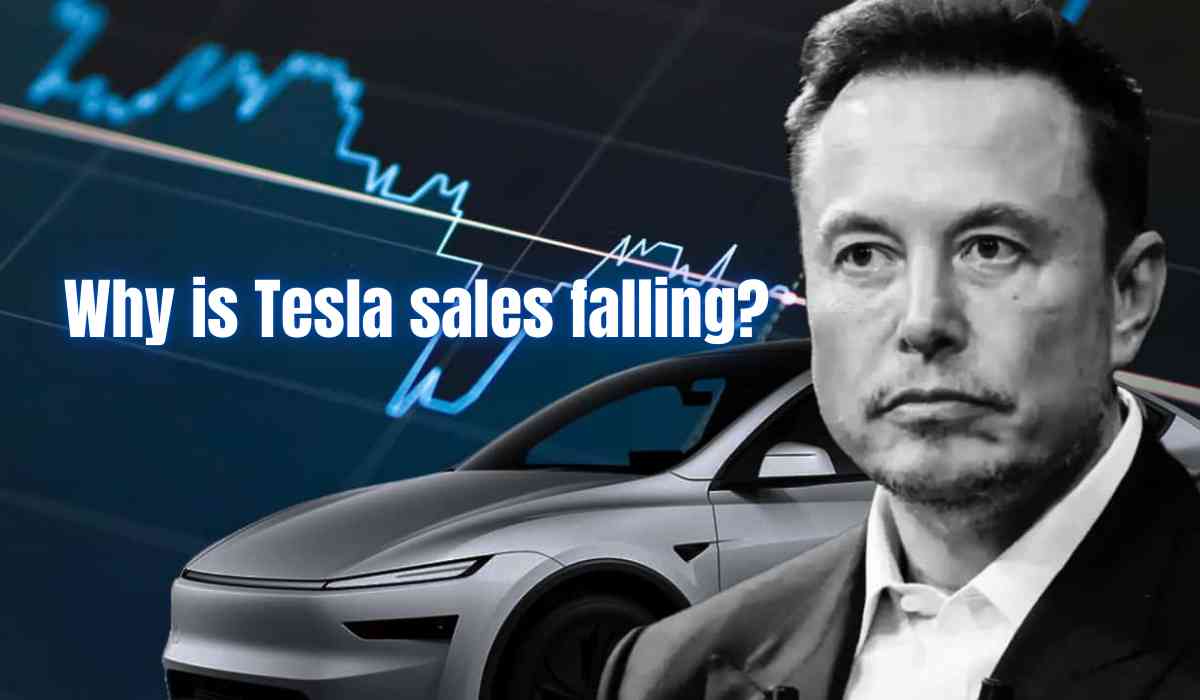Tesla, once the undisputed leader in the electric vehicle (EV) industry, has suffered a shocking setback. The company's sales plunged 13% in the first quarter of 2025, marking the largest decline in its history. With 336,681 vehicles delivered between January and March—50,000 fewer than the same period last year—Tesla is facing a combination of political backlash, increasing competition, and production halts that have significantly impacted demand.
This downturn represents Tesla’s worst quarterly sales performance in nearly three years and follows an already troubling annual sales decline in 2024. Once accustomed to rapid year-over-year growth, the company now finds itself struggling to maintain momentum in a market that is both politically charged and increasingly competitive.

Tesla’s Largest Drop in Sales: The Numbers
Tesla reported a total of 336,681 vehicle deliveries in the first quarter, a decrease of 50,000 units compared to the same period last year. This represents the company's worst sales performance in nearly three years. The decline is particularly concerning given Tesla's historical growth, which, until recently, ranged from 20% to 100% year-over-year.
Key Figures:
-
Q1 2024 Deliveries: 336,681 vehicles
-
Q1 2023 Deliveries: 387,000 vehicles
-
Decline: 13%
-
Analyst Expectations: 350,000 - 408,000 deliveries
-
Tesla Stock Drop: 44% since December
This downturn is Tesla's most significant since the COVID-19 pandemic in 2020, when production and deliveries were impacted by shutdowns. However, this time, the reasons behind the slump are more complex and alarming.
Factors Behind Tesla’s Sales Decline
1. Production Disruptions
Tesla has cited a temporary halt in Model Y production at all four of its factories as a major factor behind the decline. While production updates are routine in the auto industry, a prolonged stoppage significantly impacts sales, especially for a high-demand model like the Model Y.
2. Consumer Backlash Against Elon Musk
Musk’s increasing political involvement and controversial statements have triggered protests and negative sentiment toward Tesla. Key issues include:
-
Public demonstrations against Musk’s role in the Trump administration’s policies.
-
Vandalism of Tesla showrooms, charging stations, and vehicles.
-
Growing public disapproval: A CNN poll found that only 35% of Americans have a positive view of Musk, with 53% viewing him negatively.
Many environmentally conscious and left-leaning consumers—traditionally strong supporters of EV adoption—have expressed hesitancy toward purchasing a Tesla due to Musk's alignment with far-right politics.
3. Political and Social Impact on Tesla’s Brand
-
Tesla’s Popularity Declines Among Liberals:
-
A Morning Consult poll in February found that 32% of U.S. buyers “would not consider” buying a Tesla, up from 17% in 2021.
-
Tesla's brand loyalty in Democratic-leaning states has dropped from 72% to 65% over the past year.
-
-
European Market Struggles:
-
Tesla’s sales in Europe plummeted 49% in the first two months of 2024, despite EV sales overall rising 28%.
-
This decline may be linked to Musk’s vocal support of far-right political parties in Germany and the UK, alienating potential buyers.
-
4. Intensifying Competition in the EV Market
Tesla is no longer the dominant player in the EV market. The rise of Chinese automaker BYD has significantly shifted the landscape.
-
BYD Q1 Sales: 416,000 EVs, a 39% increase from the previous year.
-
BYD’s Competitive Edge:
-
More affordable pricing.
-
Advanced battery technology allowing for 250 miles of range with just a 5-minute charge.
-
Greater appeal in key global markets, including China.
-
5. Aging Lineup and Reduced Consumer Interest
Tesla’s Model Y and Model 3 have been around for years without major design changes, leading some consumers to hold off on purchases in anticipation of an update. The company has struggled to introduce fresh models, and competitors are offering more innovative options.

Global Challenges: Tesla’s Future in Question
Tesla is not just losing ground in the U.S.; it faces significant challenges worldwide.
China: Tesla’s Second Largest Market in Trouble
-
Tesla’s market share is shrinking as BYD and other Chinese automakers gain traction.
-
BYD consistently outpaces Tesla in quarterly sales and is on track to surpass Tesla in full-year global EV sales by 2025.
-
China’s government heavily supports local EV manufacturers, making it difficult for foreign companies like Tesla to compete.
Europe: Political Fallout Hurts Sales
-
Musk’s support of far-right political movements has alienated European consumers.
-
German customers, in particular, have distanced themselves from Tesla, contributing to the 49% drop in European sales.
-
Potential regulatory challenges from the European Union could further impact Tesla’s operations in the region.
U.S. Market
In the United States, Tesla’s brand loyalty has suffered, particularly in Democratic-leaning states.
-
Blue states: The percentage of repeat Tesla buyers dropped from 72% in 2023 to 65% in 2024.
-
Red states: Repeat Tesla purchases remained stable but low, rising marginally from 47.6% to 48.2%.
This data highlights a growing partisan divide in Tesla’s customer base, with liberal consumers shifting away from the brand due to Musk’s political affiliations.
Stock Market Impact: Investor Confidence Wanes
Tesla's stock has suffered due to its declining sales and ongoing controversies.
-
Tesla shares have fallen 44% since December.
-
Early trading after the Q1 report saw a 2% drop, before a partial rebound following speculation that Musk may step back from his government advisory role.
-
Investors are concerned about Musk’s polarizing persona negatively affecting Tesla’s reputation and, consequently, its financial performance.
Challenges Ahead: Can Tesla Rebound?
Despite its struggles, Tesla still maintains a strong global presence. However, its ability to recover depends on several key factors:
1. Addressing Political and Brand Image Issues
Musk’s controversial political stance has alienated many potential customers. To regain trust, Tesla may need to:
-
Distancing Tesla from political controversies to prevent further brand erosion.
-
Shifting focus back to innovation and sustainability to win back environmentally conscious buyers.
-
Offer more attractive incentives to win back hesitant buyers.
2. Competing with Next-Generation EVs
Tesla must innovate to stay competitive against BYD and other automakers. This includes:
-
Upgrading battery technology to match or surpass BYD’s fast-charging advancements.
-
Expanding its lineup with more affordable EV options.
-
Strengthening its autonomous driving features to maintain a technological edge.
-
Tesla needs to refresh its lineup, with a particular focus on the anticipated Model Y update.
3. Reviving Sales in Key Markets
-
In Europe, Tesla must work to counteract the political backlash and improve its reputation.
-
In China, Tesla needs to adjust its pricing strategy to compete with lower-cost local manufacturers.
-
In the United States, the company must regain trust among liberal consumers while maintaining its existing customer base.
Tesla at a Crossroads
Tesla’s 13% sales drop marks a turning point for the company. As competition intensifies and Musk’s political affiliations alienate key customer demographics, the EV giant must redefine its strategy to remain dominant in the industry.
Whether Tesla can bounce back depends on its ability to repair its brand, innovate in technology, and address competitive threats. Otherwise, the once unchallenged leader in EVs may find itself struggling to maintain relevance in an increasingly crowded market.
With inputs from agencies
Image Source: Multiple agencies
© Copyright 2025. All Rights Reserved Powered by Vygr Media.























